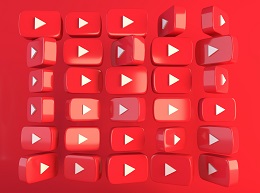story of paypal

Embark on the captivating journey of PayPal, a trailblazing platform that revolutionized online payments. Discover the origins, challenges, and transformative moments that propelled PayPal into becoming a global force in the world of digital transactions.
Inception: The Genesis of Online Payments
In 1998, Max Levchin, Luke Nosek, and Peter Thiel founded Confinity, a company focused on creating security software for handheld devices. A year later, Confinity merged with X.com, an online banking company founded by Elon Musk. The result of this merger was the birth of what would eventually become PayPal.
Founders' Bio: Pioneers in Fintech
Max Levchin: The Tech Visionary
Max Levchin, with a background in computer science, played a crucial role in the development of the security software that laid the foundation for PayPal. His vision for secure online transactions became integral to the platform's success.
Luke Nosek: The Strategic Mind
Luke Nosek, with experience in strategy and business development, contributed to shaping PayPal's early growth. His strategic insights were instrumental in navigating the challenges of the evolving fintech landscape.
Peter Thiel: The Entrepreneurial Force
Peter Thiel, an entrepreneur and investor, co-founded Confinity and later played a key role in guiding PayPal through its initial stages. His entrepreneurial spirit and strategic thinking were pivotal to PayPal's success.
Challenges in the Early Days: Navigating the Dot-Com Landscape
Security Concerns
The early days of online transactions were marred by security concerns. PayPal had to convince users that their financial information would be safe and secure, overcoming skepticism about the safety of online payments.
Regulatory Hurdles
Navigating the regulatory landscape posed a challenge. PayPal had to work closely with financial institutions and regulatory bodies to ensure compliance and gain trust in an industry that was still finding its footing.
Market Competition
Competition in the online payment space was fierce. PayPal had to differentiate itself in a crowded market, offering solutions that were not only secure but also user-friendly and accessible to a broad audience.
Evolution: From Confinity to PayPal
E-Commerce Boom
The late '90s and early 2000s saw the rise of e-commerce. PayPal positioned itself as the go-to payment solution for online transactions, becoming the preferred choice for users on platforms like eBay.
Acquisition by eBay
In 2002, eBay acquired PayPal for $1.5 billion, recognizing the pivotal role the platform played in facilitating online transactions within its marketplace. The acquisition provided PayPal with a massive user base and global reach.
Diversification of Services
Under eBay's ownership, PayPal expanded its services beyond online auctions. It became a versatile payment platform, allowing users to make transactions, transfer money, and even withdraw funds to their bank accounts.
Key Milestones: Shaping the Digital Payments Landscape
Independence from eBay
In 2015, PayPal separated from eBay, becoming an independent publicly traded company. This move allowed PayPal to chart its course and explore new opportunities in the evolving digital payments ecosystem.
Strategic Acquisitions
PayPal strategically acquired companies like Braintree and Venmo, broadening its range of services. Venmo, in particular, became popular for peer-to-peer transactions and played a significant role in shaping modern digital payment habits.
Embracing Cryptocurrency
In 2020, PayPal embraced cryptocurrency, allowing users to buy, sell, and hold digital currencies. This move marked a significant step toward the mainstream acceptance of cryptocurrencies in the financial industry.
Legacy and Impact: Shaping Digital Finance
PayPal's legacy is deeply rooted in its transformation of digital finance. From pioneering secure online transactions to becoming a comprehensive digital payments platform, PayPal has played a pivotal role in shaping how individuals and businesses conduct financial transactions in the digital age.
As we navigate the PayPal Chronicles, we witness the founders' vision come to life and the platform's transformative impact on the world of online payments—an impact that continues to resonate globally, reshaping the way we exchange value in an increasingly digital and interconnected world.






